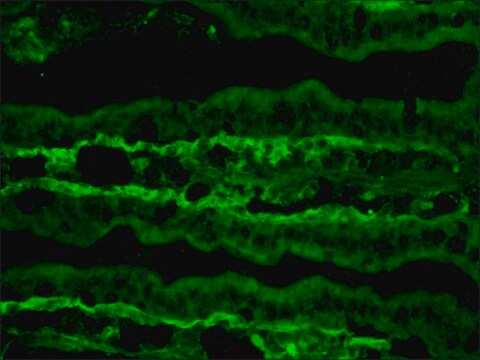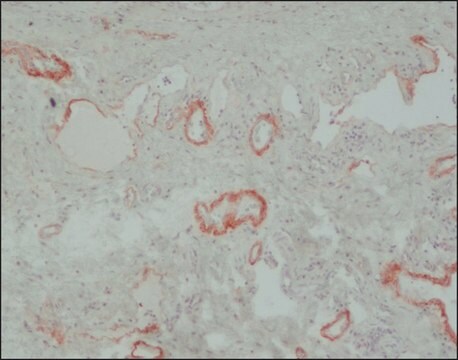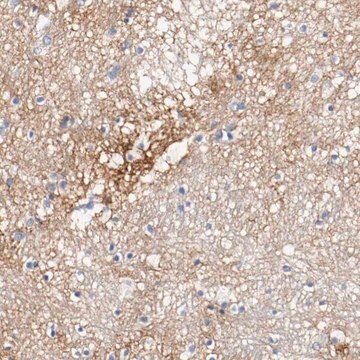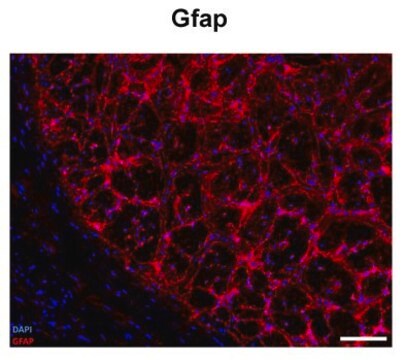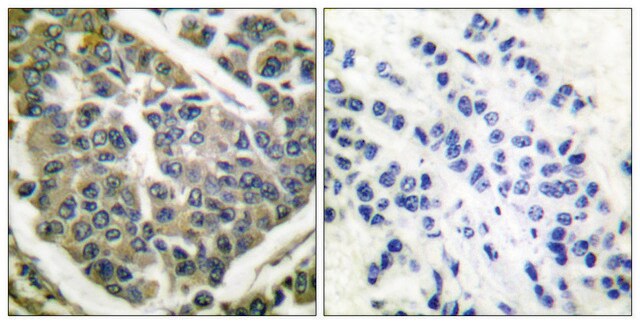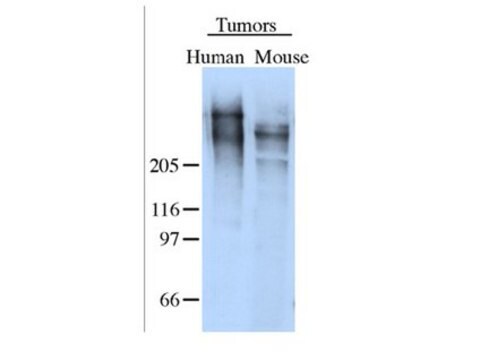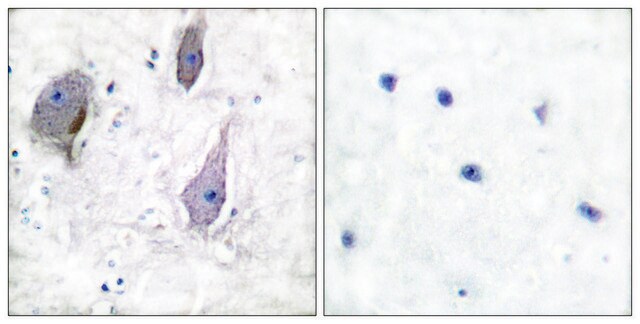General description
Monoclonal Anti-Human Tenascin (mouse IgG1 isotype) is derived from the BC-24 hybridoma produced by the fusion of mouse myeloma cells and splenocytes from an immunized mouse.
Tenascin (TN) is a high molecular weight, multifunctional, extracellular matrix glycoprotein, expressed in association with mesenchymal-epithelial interactions during development and in the neovasculature and stroma of undifferentiated tumors. Human TN has 3 subunits of 190, 200 and 220 kD. TN has been independently discovered in a variety of species and tissue types, often in the basement membrane or intercellular spaces. The expression of TN is associated with development and growth, both normal and pathological, with restricted distribution in normal adult tissue. It is synthesized by fibroblasts, chondroblasts, osteocytes, smooth muscle cells and glial cells. Human and chicken TN contain an RGD sequence which may function in cell adhesion and it seems likely that TN mediates cell attachment through an RGD-dependent integrin receptor. Mouse TN does not contain an RGD sequence in the third type III repeat implicated in cell attachment, or in any other positions.
Specificity
The antibody recognizes an epitope within the N-terminal EGF-like (EGF-L) sequence of the molecule. It recognizes all human tenascin isoforms.
Application
Monoclonal Anti-Tenascin antibody produced in mouse has been used for immunohistochemistry.
Mouse monoclonal clone BC-24 anti-Tenascin antibody is an essential tool for the localization, identification and studies on the role of tenascin in epithelial-mesenchymal and neuronal-glial interactions.
Biochem/physiol Actions
Tenascin (TN) is up-regulated by epithelial transforming growth factor β (TGF-β) in mesenchyme. TN in the stroma of cancerous tissue contributes to tumorigenesis and progression of metastasis. High molecular weight TN isoform, a stromal marker of breast cancer, over-expresses implicating cell proliferation and invasion. TN has a potential role in tissue restoration. Intracytoplasmic TN immunoreactivity has been detected in malignant melanomas and in lung carcinomas. TN expression, when reacted with monoclonal antibody, determines its localization in tumor cells and its association with epithelial-mesenchymal and neuronal-glial cell interactions.
Physical form
This product is supplied as ascites fluid containing 15 mM sodium azide
Storage and Stability
For continuous use, store at 2-8 °C for up to one month. For extended storage, solution may be frozen in working aliquots. Repeated freezing and thawing is not recommended. Storage in "frost-free" freezers is not recommended. If slight turbidity occurs upon prolonged storage, clarify by centrifugation before use.
Disclaimer
Unless otherwise stated in our catalog or other company documentation accompanying the product(s), our products are intended for research use only and are not to be used for any other purpose, which includes but is not limited to, unauthorized commercial uses, in vitro diagnostic uses, ex vivo or in vivo therapeutic uses or any type of consumption or application to humans or animals.
